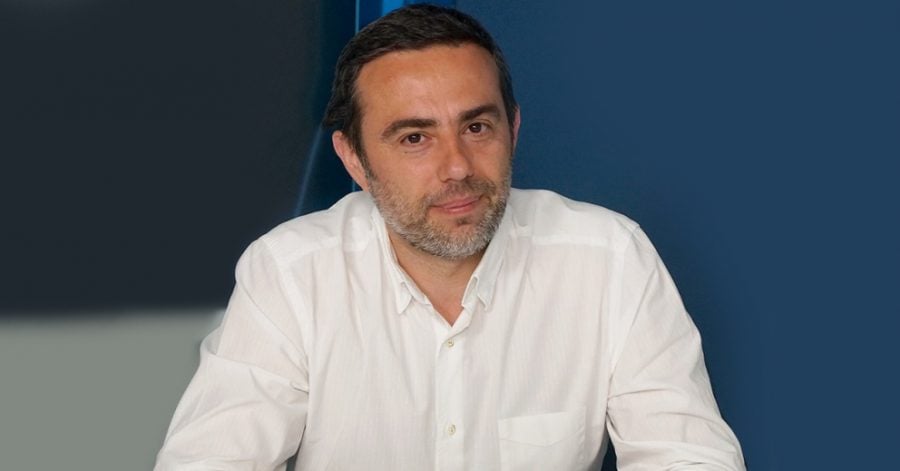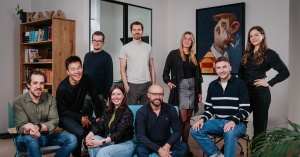Have you ever heard the term micro VC?
Let us begin with a quick recap of what happened in the Romanian startup ecosystem in 2020 – we saw 59 funding rounds taking place that amounted to €30.39M, according to How to Web’s Romanian Venture Report, thus facing a 6.18% growth, compared to 2019. When it comes to new startups, seed investments amounted to €21.87M, some 72% of the total investment, with first-time-raising startups receiving €13.92M. So far, investors have been heavily investing in already developed startups – the rounds of TypingDNA, Deepstash, and Soleadify are responsible for 35% of the total capital raised last year and 100% of all the international funding coming in Romanian startups. As new startups are now attracting more interest from local investors, we are left wondering how is this going to evolve in 2021 and what do the new players need?
“The Romanian ecosystem is like every ecosystem at the early stages of its development. It needs more founders that take the lead in developing new startups, more success stories to fuel the pipeline of potential founding teams, and the know-how of investors, crucial for starting to build or developing one’s startup. It will also need more institutional and private money to enter into the ecosystem development,” shared Vlad Panait, Managing Partner and one of the founders of Sparking Capital – a Romanian micro VC fund, specializing in pre-seed and seed investments by bringing executive experience in early-stage startups. Recently, the Recursive team reached out to Sparking Capital as part of our goal to explore Romanian VCs from the inside-out and gain insights about how they are going to react, having in mind the recent ecosystem results.
From Corporate FMCG Manager to VC
Panait has a multinational background with over 20 years of commercial experience in different geographies. Part of his working experience includes being a brand manager at Unilever South-Central Europe, marketing manager at Heineken Breweries Ethiopia and Heineken Serbia, as well as marketing director at Philips for Central Eastern Europe KA, and SDA Southeast Europe. On his development path as an Angel investor, in 2017, he supported Mindful Chef UK, a healthy recipe box and prepared frozen foods company that got acquired by Nestle UK&I in Dec 2020. One thing led to another, and in 2017, Panait established Sparking Capital, a Romanian Angel fund, sponsored by Panait and his Founding Partner, Cristian Negrutiu, who joined in 2018. After seeing signs of the early success of the new venture, the two founders decided to fundraise and establish a VC. In its essence, micro VC funds are focused on pre-seed and seed investments, and, contrastingly to series A and above funds, they are focused on helping companies gain traction rather than grow. The role of Limited Partners, involved in such VCs, is to support the startups in establishing their initial market network, management, and go-to-market strategies and support them in their early stages.
Currently, Sparking Capital has a portfolio of 9 companies, among which are Questo, Evertoys, and Hyperhuman, while its fund size is expected to reach €5M by the end of 2021. In the case of Questo, which turns city exploration into a gaming experience through its application, and Evertoys, specialized in a subscription-based toy and games rental, Sparking Capital made two follow-on rounds in partnership with other VCs/ecosystem players, including Early Game Ventures, and is currently working on finalizing two more follow-on investments.
Emerging founders and know-how: the role of the micro VC
Panait noted that a starting point for Sparking Capital was that many of the founders do not have strong business development and growth knowledge base required for coming up with a suitable business model and establishing a go-to-market strategy and understanding the opportunities for scaling, which is essential for the early stages of a company’s existence. He shared that the VC drew on the good technical skills in the market, highlighting the number of Romanian software developers (around 116K), as well as other factors, such as the lower cost of high-skilled expertise in the SEE region, compared with the US and Western Europe, which makes the region a top location for IT and software outsourcing. “We are bringing C-level executive experience to startups at the earliest stage in their development through our direct and extended working network. We combine agility, given by our lean structure and strategic thinking capabilities, developed as C-Level executives in a multinational environment,” the co-founder shared.
For Sparking Capital, connecting with prospective startups usually begins during their participation in online events and accelerator programs, organized by local Angel networks and organizations such as TechHub Bucharest. The process of working with startups includes a rigorous information exchange process, weekly meetings, and bi-monthly reporting sessions that outline the progress made by a company, as well as the spheres in need of improvement. The ultimate goal is to jointly create and develop the business roadmap of the startups. During the process, outside expertise can be key to expanding the threshold of a company, the co-founder shared. “We’re bringing different experts or third-party expertise if needed. In different cases, they would need a specific skill that they don’t have in their team. In such situations, we reach out to lawyers, trying to analyze cases, concerning IP rights or GDPR related rights, as well as legislation in other countries.” Thus, the scope of operations usually covers a lot more than providing pre-seed and seed funding. “We also facilitate access to potential customers through our network, meaning we are involved in setting up meetings, working with startuppers on the decks for potential customers. The same goes when startups have to hire, as our network gives access to developers, digital marketeers, B2B SaaS sales managers, etc.,” Panait said. According to him, this is among the most important roles for the VC players, considering the current development stage of the ecosystem that is in need to better understand not only the basic know-how strategies but also take grasp of the opportunities offered at the market.
Proactive entrepreneurship during the crisis
“Founders must be courageous, despite the tough times we are all living in. Many of the startups they are now looking up to were born in the 2008 economic crisis and the economic cyclicity is generating a lot of opportunities,” Panait stated. The current pandemic situation has challenged many market players, disrupting legacy industries, such as the real estate sector, which was forced to come up with a way of offering its services online. While this may sound like bad news, Panait stressed the fact that it can be a fertile ground for property-tech startups. “Many SMEs, which were selling offline before COVID-19, were forced to adopt an online or omnichannel go-to-market. They are facing challenges on how to manage the assortment between channels, inventory, pricing, logistics, promotion, consumers, data from different unintegrated sources, data security, GDPR compliance, etc. in a data AI-driven e-commerce world. Therefore, there are many fresh opportunities for AI e-commerce, cloud-based ERP, and cyber-security startups,” the entrepreneur outlined.
Sparking Capital has invested in startups from two of the most impacted industries in recent times – travel and events. Last year, the VC took the time to adjust during the first wave of the pandemic but finished the second quarter of 2020 with 4 investments, including Questo, event venue booking startup Instant Spaces, and manufacturing performance management company KFactory. Panait added that the VC responded to the situation during the first months by continuous deal flow assessment and a greater focus on customer value creation and retention, cost, and cash flow management. When it comes to travel tech startups Panait drew on the experience of Questo, which raised €1.2M ($1.5M) in a follow-on round in February 2021, led by Early Game Ventures and involving Sparking Capital. “They are re-inventing the tours and activities vertical of the travel industry, one of the biggest worldwide, and they have such a strong value proposition that they grew during this crisis while others were severely under stress. Despite the big current headwinds of the industry, tourism will recover. The companies which will survive the crisis will get fitter, will strengthen their value proposition, customer base, unit economics, and will win in the mid-long term,” he elaborated.
The future ahead
In 2021, Sparking Capital is planning to expand its portfolio to 12 or 13 startups. As negotiations are currently underway for finalizing the follow-on rounds with another 4 early-stage companies for follow-on rounds, the VC also aims to strengthen its presence in the CEE ecosystem through deal flow development and co-investments with other VCs from the region. In the upcoming months, Sparking Capital is planning on developing a Series A for one of its portfolio companies. In the long-term, the VC plans to become the preferred pre-seed VC for Romanian startups, for which it will be working on launching a Net Promoter Score and start with the rising of its second fund.








